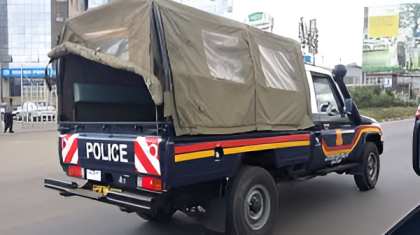Silenced but unbowed: Police brutality report reveals 600 injuries, 63 killings

According to the report, state violence has led to 63 confirmed deaths, 63 abductions, 26 missing persons, more than 600 injuries, and widespread cases of torture and illegal detention.
A new report by the Independent Medico-Legal Unit (IMLU) has laid bare a deeply rooted pattern of police brutality and unchecked impunity in Kenya, exposing years of state-sanctioned violence that go far beyond the recent Gen Z-led protests.
Titled Silenced But Unbowed, the report documents a disturbing legacy of excessive force by security officers, supported by eyewitness accounts, autopsy findings, and medical records.
IMLU says this brutality is enabled by the state’s ongoing failure to hold individual officers and institutions accountable.
According to the report, state violence has led to 63 confirmed deaths, 63 abductions, 26 missing persons, more than 600 injuries, and widespread cases of torture and illegal detention.
“This failure to address past and present crises stems from Kenya’s systemic failure to hold security agencies accountable—especially at the command level,” said Regina Opondo, a board member at IMLU.
“While a few junior officers have been prosecuted in high-profile cases, such as the murder of lawyer Willie Kimani, the majority of violations remain unpunished. The doctrine of command responsibility, although enshrined in the International Crimes Act of 2011, remains grossly underutilized,” she added.
The report also highlights the gendered nature of the violence, revealing that 96 percent of those killed were male. Men also made up 88 percent of arrests and 87 percent of abductions, pointing to a recurring trend in how force is applied.
IMLU Executive Director Grace Kahuria challenged claims that recent protests provoked police violence, stressing that officers have a legal obligation to manage crowds without violating rights.
“We must not accept the narrative that Gen Z provoked police brutality,” she said. “There are provisions in law guiding lawful response to public order situations.”
The report also criticises increasing use of masks and unmarked vehicles by officers, describing the tactics as deliberate attempts to conceal identities and shield perpetrators from accountability.
The report’s findings sparked strong reactions from the legal and human rights community. Law Society of Kenya President Faith Odhiambo condemned the government’s funding cuts to institutions mandated to investigate such abuses.
“KNCHR is being crippled—reduced to an entity that can barely pay salaries, let alone serve the public. IPOA faces similar frustrations,” said Odhiambo. “Meanwhile, agencies like the National Cohesion and Integration Commission (NCIC), whose impact remains questionable, continue to receive generous funding.”
The report paints a picture of a security system resistant to oversight, where violations are met with silence or weak institutional responses.
IMLU warns that without urgent reforms and genuine political will, the cycle of violence will continue to deepen public mistrust in Kenya’s security agencies.
